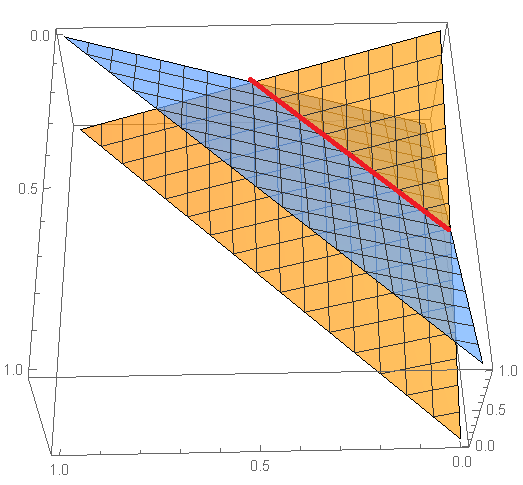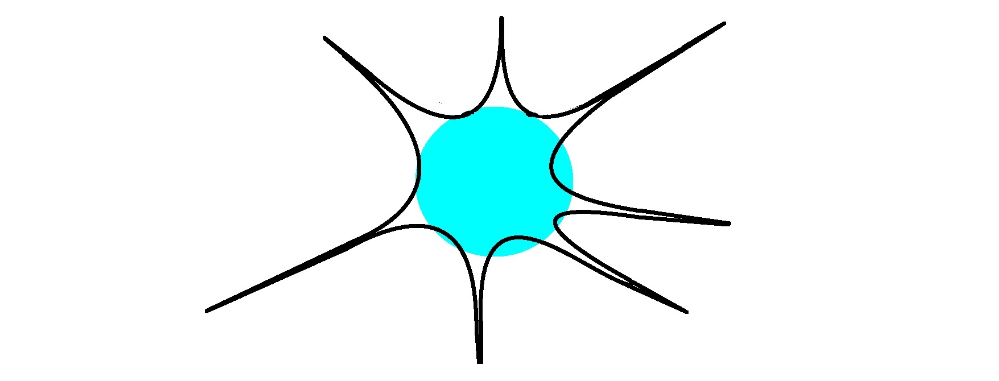I'm trying to sample uniformly on the intersections of faces of several simplicies, with all coordinates being non-negative. That is, given constraints $$A\vec{w}=\vec{b} \ \ and \ \ \vec{w} \geq \vec{0} \ \ and \ \ \sum w_i = 1,$$ I want to sample $\vec{w}$ uniformly. $A$'s dimension is about $100 \times 10000$. A concrete example will be: $$A = \begin{bmatrix} 1 & 1 & 1 \\ 0 & 1 & 2 \end{bmatrix}, \ b=\begin{bmatrix} 1 \\ 0.7 \end{bmatrix}$$, sample $\vec{w}$ uniformly from $Aw=b$ subject to $\vec{w} \geq \vec{0}$ and $\sum w_i = 1$ (This makes the sampling space bounded). Below is a graphical representation of the problem -- to sample uniformly from the red intersection line.

I am well aware that rejection-sampling and MCMC sampling can theoretically solve this problem. However, I have already implemented both approaches in programming, and neither of these two methods performs well enough. This is because the dimension of my sampling space usually goes up to 10000, and rejection sampling simply throws away too many points and MCMC is taking forever to converge. Therefore, I'm desperate to try new methods. Many thanks in advance!! (please do not provide answers using rejection sampling; methods that already have open-source programming implementations are favored)

